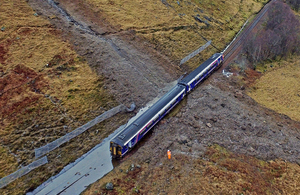Lord Willets, Vice Chancellor, Distinguished Guests, Ladies and Gentlemen.
I take huge pride in being here and talking about British education, because education is above all else and industry of hope and opportunity – it is also, when done well, an industry of amazing energy and creativity;
Over the last four years working on education in Malaysia I have seen this up close. This is a country at the heart of one of the most dynamic regions in the world, a place of constant renewal and change, with a population that is young, talented, and hungry for betterment and growth;
Seeing this up close has reinforced my belief that great change is coming to the education sector across the world. That it will be spurred by a greater drive for choice and tailoring, reflecting more individual approaches to employment and working lives that will span multiple career paths;
That it will have to be more responsive to industry needs, able to teach the latest approaches through the latest methods, rather than through classrooms of students arranged in rows that would be instantly recognisable to a teacher from the 1800s;
That it will become more flexible and adaptable to teach a new generation of job makers, not job takers. People who will be far more focused on the value for money of what is taught, and will want skills they can transfer between jobs not regurgitate by rote;
And it will need to be global, and modular. Allowing students to study at their pace and in their way, but also ensuring the honours they earn will be recognised and respected they work in the world;
In Malaysia I can already see a lot of these attributes, in an education sector which is increasingly competitive because of the demanding nature of its customers. It will, I believe, be the crucible for change in 21st Century educational practises. There is much here for the UK to learn from.
All of which his by way of saying how delighted I am to be part of Oxford International AQA examinations at this Thought Leadership event
About a year ago, we hosted the Oxford International AQA examinations launch in the British High Commissioner’s Residence. And most recently, we have launched another Oxford initiative in the country that was the Said Oxford Business School Executive Education for SME leaders.
British High Commission is very pleased to support this work as part of our wider Education is GREAT Campaign, which looks to not only support suppliers of British education, but through that to enhance our partnership with Malaysia, its educators, and its people;
Education is a sector that has been at the heart of our bilateral relationship for two centuries, since the first English international school opened in Penang in 1816. Today, there are over 100 international schools teaching the British curriculum in Malaysia, 5 university branch campuses, and over 125 institutions that offer UK degrees.
But it is more than that. It is about sharing and blending our culture of learning. Just as thousands of Malaysian students have studied in the UK, so too are increasing numbers of UK students drawn to Malaysia – with tropical weather and easy access to sandy beaches even in winter, on top of outstanding learning opportunities, it is no surprise they are drawn here!
This pull for UK students, and of our Universities, explains why Malaysia is fast becoming the Education hub for the region. In response to the Malaysia Education Blueprint and the 11th Malaysia Plan, the UK offers its expertise and capabilities to strive the ambition for Malaysia to become a developed nation by 2020.
We must agree that the only way to do this is through quality education for the nation, as education provides endless opportunities.
To prepare students for university education and the workforce with 4.0 Industry revolution we need to equip them with a range of qualities and skills that are considered vital to success.
Oxford AQA qualifications are a perfect example of that, a means through which Malaysian students can not only take advantage of the latest state-of-the-art in learning, but also know that they are investing in a legacy of teaching that will grow in value in the future;
At the same time, it is also a means for Oxford AQA to take all the learning from the Malaysian experience and apply it to their approaches for UK students – ensuring we are not left behind in Asia’s educational revolution;
I wish you all every success in the course of this seminar, and look forward to continuing my interactions with you on behalf of the British Government.

